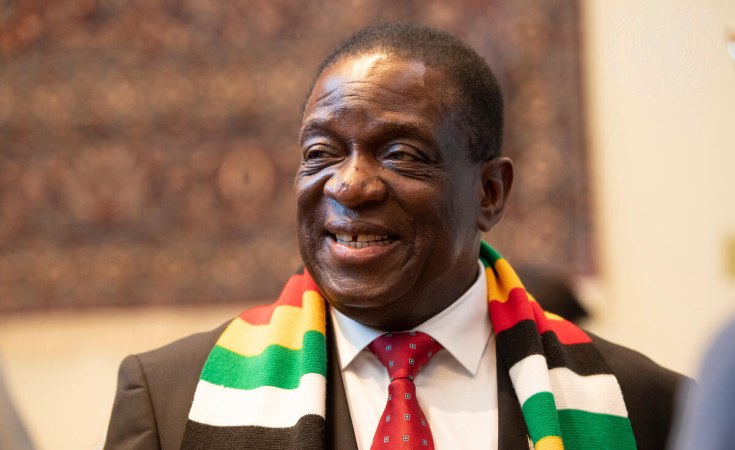Gaborone, Botswana — Botswana, which supported calls for the removal of targeted sanctions imposed on Zimbabwe, has described the United States' move to partially lift the restrictions as "encouraging."
Botswana's President Mokgweetsi Masisi, addressing the media in Gaborone Wednesday, said there is need for further dialogue between Zimbabwe and the United States to enable the complete removal of the sanctions.
"It's very, very encouraging that finally some of our calls have been responded to in ways that will help Botswana when those are done and to promote dialogue on aspects the Americans deem offensive with Zimbabwe," said Masisi. "We want to encourage both parties to meet over what else remains to be resolved in order for a country not to be sanctioned."
But Zimbabwe-based political analyst Reason Ngwenya says dialogue over the complete removal of the restrictions can only be possible if Harare meets Washington's conditions.
"If there is to be unconditional lifting of sanctions, it means there has to be unconditional governance in this country," Ngwenya said. "We don't want corruption, we don't want the opposition to be harassed, we want a free media. Until all these things have been removed, I don't think it is possible that the Americans will want to sit down and negotiate anything. We should all be fair. We are unhappy with this situation, but our government should do its part."
The United States placed sanctions on certain Zimbabwean officials and companies starting in 2003 for alleged election rigging and human rights violations by the government of then-President Robert Mugabe.
Although the U.S. lifted many of the restrictions this week, current President Emmerson Mnangagwa, his wife and some senior government officials remain sanctioned.
Washington cites human rights abuses and corruption for extending the restrictions.
Moeti Mohwasa, spokesperson for Botswana's main opposition coalition, the Umbrella for Democratic Change, or UDC, says removal of the sanctions is only fair.
"We believe this is a welcome development because the biggest victims were the ordinary citizens who had to endure economic hardships arising from sanctions and grapple with atrocities and abuses visited upon them by the regime," Mohwasa aid. "We all know the people behind political and economic abuse in Zimbabwe. The U.S. should not have skirted around the Zimbabwean situation. It was very unfair to have the Zimbabwean ordinary people suffer double jeopardy."
The Zimbabwean government says the sanctions were baseless, maligned the country and left its leaders without due process.
U.S. Secretary of State Antony Blinken says remaining restrictions imposed on President Mnangagwa and other officials are part of a stronger and more narrowly targeted sanctions policy.


